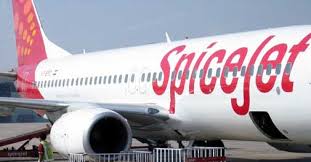
The South West District Consumer Disputes Redressal Forum noted that the luggage was intact when it was checked-in by the complainants at Srinagar Airport, but on reaching Delhi Airport one of the bags was found to be damaged with its lock removed.
"The tampering has been done during transit, when the baggage was in the custody of the opposite party (SpiceJet), which failed to take proper and adequate care of the properties entrusted to them by a consumer and are liable for deficiency in service," a bench presided by Narendra Kumar said.
The forum directed the airline to pay the complainants, Delhi residents R Raja and M Nuthan R Ballal, Rs 20,289 towards items found missing from their luggage and Rs 8,000 as compensation and litigation cost.
The couple had submitted in their complaint that when they boarded the flight from Srinagar, they had checked-in seven pieces of luggage which were locked. When they arrived in Delhi, they found that one of the bags was torn, its lock removed and some of its contents missing.
They had immediately brought the matter to the attention of the airline's representatives and had also given them the list of the articles missing from the bag, however, SpiceJet had refused to compensate them for the loss, they had alleged.
In its defence, SpiceJet had contended that primarily their liability is limited to paying an amount of Rs 3,000 as compensation and secondly the instant case was one of alleged theft of which there is no proof.
The forum, however, rejected the contentions of the airline.





Comments
Add new comment